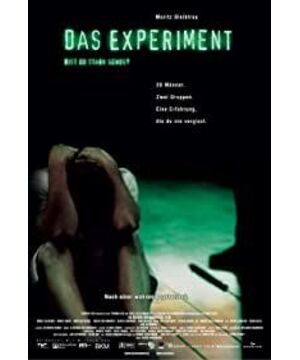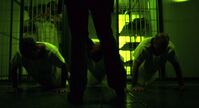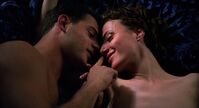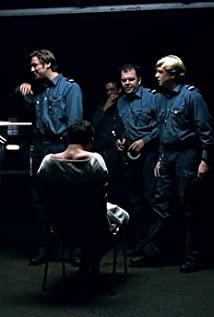Violence is the foundation of power (obedience). As a thorn, Tarek should be a character who dares to challenge authority, dare to act, and has a leadership temperament in real life. Prison guard Borus appears as the manager and authority figure in the game. But he was challenged by Tarek at first. Before violence was used, Borus had only false power and could not convince the public. Prison guard Eckert was also fooled. However, after the sudden and violent suppression of the prisoners by the prison guards at night, and the public humiliation of Tarek's thorns, the image of his leader was damaged, and order was restored in the prison. After exercising this realistic and feasible violence, most of the prisoners basically recognized the authority and power of the prison guards. But Tarek the Thorn continues to challenge authority, and he doesn't have enough violence to resist the violence of the guards. Therefore, he continued to be humiliated and beaten. After that, he showed obedience.
With a base of violence, violence can no longer be used, and intimidation can be used, such as the placement of black boxes. This further strengthens the power and authority of the prison guards. Just imagine, if there was no violence in the beginning, power and authority would be impossible to talk about. In the face of challenges, it is impossible to maintain order without the use of violent strikes. Then for the prison guards, if they fail to do the tasks assigned by their social roles, they are dereliction of duty, and they should be out of the game.
In this film, I saw the law of the jungle re-enacted on the African savannah. A mature and young male lion challenges the lion king. If the lion king can suppress it, he can continue to enjoy delicious food and beauties. If unable to fight, the Lion King will lose everything. During this time there will be a fierce battle. It's a war of power.
View more about
The Experiment reviews











